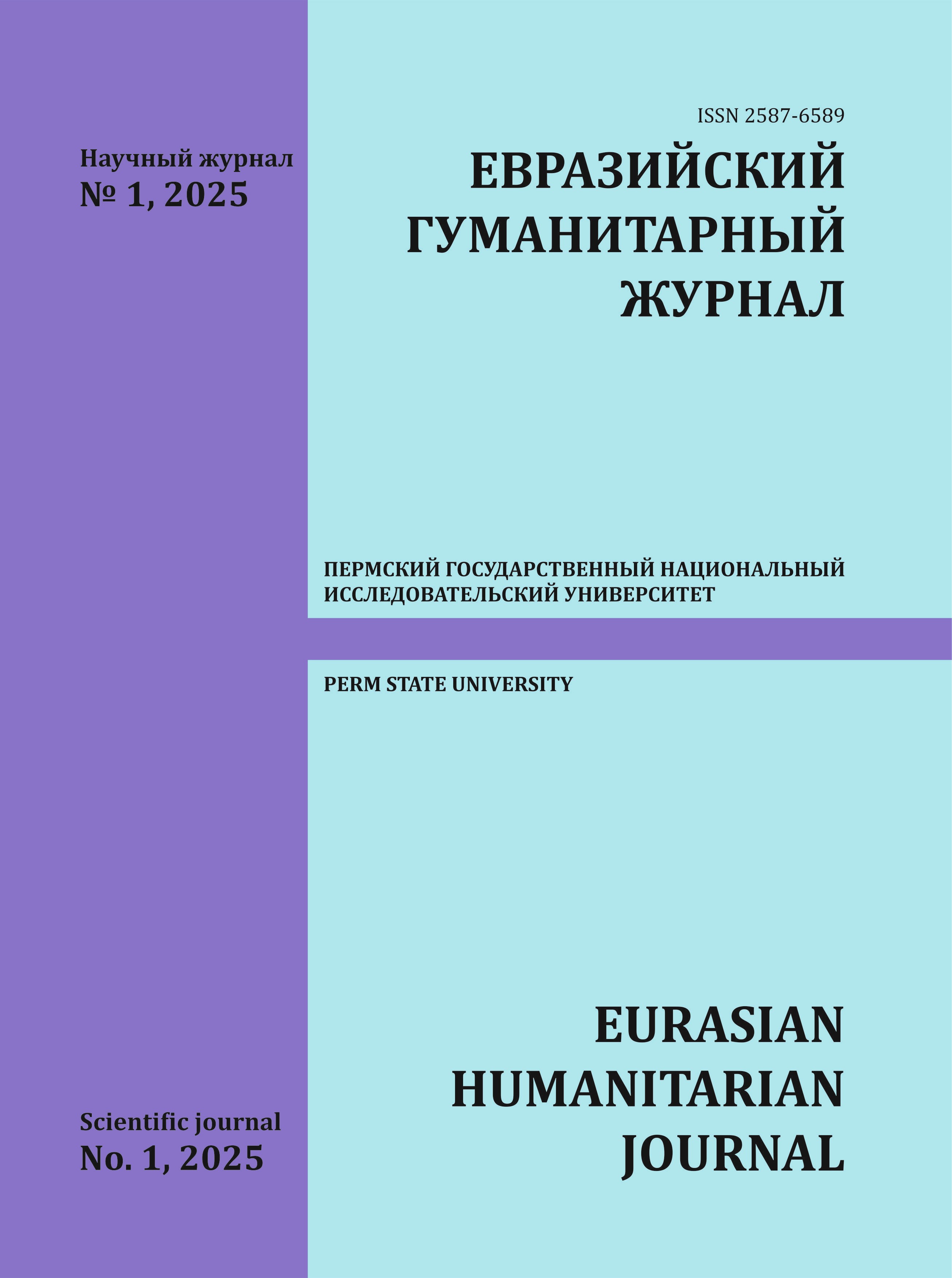PREPOSITIONAL DEVERBATIVES IN RUSSIAN, ITALIAN AND SPANISH: FUNCTIONAL-SEMANTIC ASPECT
Keywords:
functional-semantic aspect, deverbatives, prepositional deverbatives, Russian language, Italian language, Spanish language, derivational semantics, taxis functions, simultaneity, precedence, followingAbstract
This article is devoted to the consideration of prepositional deverbatives in Russian, Italian and Spanish. The aim of the study is to consider prepositional deverbatives in the functional-semantic aspect in order to describe their taxis functions realized in utterances with temporal prepositions. The study established that in Russian the taxis meanings of simultaneity, precedence and succession are realized by means of prepositional deverbatives ending in –ние /–ение, –к(а), –тие, used with temporal prepositions при, во время, перед, до, после. In Italian, deverbatives in –aggio, –eggio, –izzazione, –enza, –о, –zio, –io, –ta, –zione, -sione, –ura with temporal prepositions a (al, all`), durante, mentre, prima, dopo actualize the taxis meanings of simultaneity and multitemporality. In Spanish, actional deverbatives in –miento, –cion, –sion implement the taxis functions of simultaneity, precedence, following in utterances with temporal prepositions hasta, desde, después de, durante. The prospects of this study are related to the further development of the theory of taxis in a comparative perspective (both in Slavic and Romance languages).Downloads
Published
2025-03-14
Issue
Section
ФУНКЦИОНАЛЬНАЯ ГРАММАТИКА

